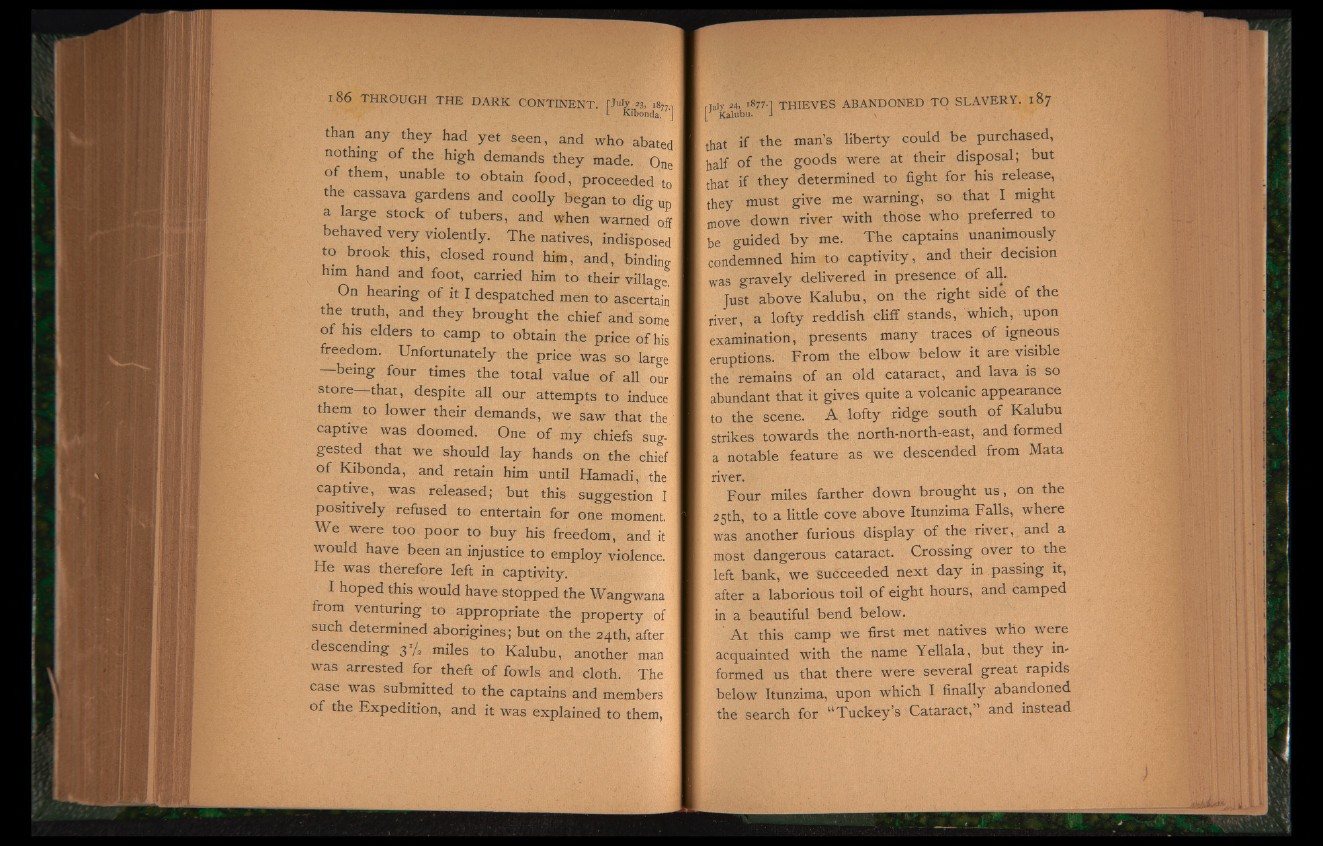
than any they had yet seen, and who abated
nothing of the high demands they made. One
of them, unable to obtain food,'proceeded to
the cassava gardens and coolly began to dig Up
a large stock of tubers, and when warned off
behaved very violently. The natives, indisposed
to brook this, closed round him, and, binding
him hand and foot, carried him to their village
On hearing of it I despatched men to ascertain
the truth, and they brought the chief and some
of his elders to camp to obtain the price of his
freedom. Unfortunately the price was so large
— being four times the total value of all our
store that, despite all our attempts to induee
them to lower their demands, we saw that the
captive was doomed. One of my chiefs sug-
gested that we should lay hands on the chief
of Kibonda, and retain him until Hamadi, the
captive, was released; but this suggestion I
positively refused to entertain for one moment.
We were too poor to buy his freedom, and it
would have been an injustice to employ violence.
He was therefore left in captivity.
I hoped this would have stopped the Wangwana
from venturing to appropriate the property of
such determined aborigines; but on the 24th, after
descending 3% miles to Kalubu, another man
was arrested for theft of fowls and cloth. The
case was submitted to the captains and members
of the Expedition, and it was explained to them,
rtaly 34, 1877-1 THIEVES ABANDONED TO SLAVERY. 187
[ Kalubu. I
that if the man’s liberty could be purchased,
half of the goods were at their disposal; but
that if they determined to fight for his release,
they must give me warning, so that I might
move down river with those who preferred to
he guided by me. The captains unanimously
condemned him to captivity, and their decision
was gravely delivered in presence of all.
Just above Kalubu, on the right side of the
river, a lofty reddish cliff stands, which, upon
examination, presents many traces of igneous
eruptions. From the elbow below it are visible
the remains of an old cataract, and lava is so
abundant that it gives quite a volcanic appearance
to the scene. A lofty ridge south of Kalubu
strikes towards the north-north-east, and formed
a notable feature as we descended from Mata
river.
Four miles farther down brought u s , on the
25th, to a little cove above Itunzima Falls, where
was another furious display of the river, and a
most dangerous cataract. Crossing over to the
left bank, we succeeded next day in passing it,
after a laborious toil of eight hours, and camped
in a beautiful bend below.
At this camp we first met natives who were
acquainted with the name Yellala, but they informed
us that there were several great rapids
below Itunzima, upon which I finally abandoned
the search for “Tuckey’s Cataract, and instead